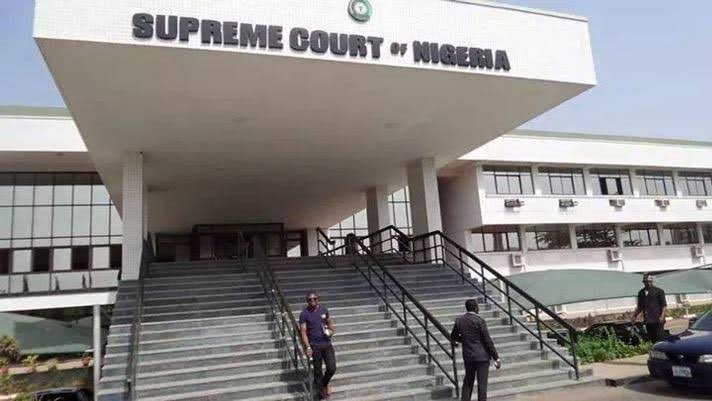In a landmark decision on Thursday, the Nigerian Supreme Court ruled that governors cannot disband democratically elected Local Government (LG) councils in Nigeria. The Nigerian Supreme court’s judgment underscored that such actions contravene the 1999 Constitution, which guarantees the autonomy and functionality of local governments as a third tier of government. This ruling marks a significant affirmation of the legal protections afforded to local governments under Nigerian law.
Justice Agim, delivering the lead judgment, emphasized that disbanding elected LG councils undermines democratic principles and the rule of law. He pointed out that the 1999 Constitution clearly delineates the powers and responsibilities of local governments, and any attempt by state governors to dissolve these councils is both unconstitutional and detrimental to the democratic process. This ruling is expected to have far-reaching implications for governance at the local level, reinforcing the independence and integrity of LG councils across the country.
Financial Autonomy for Local Governments
The Nigerian Supreme Court also mandated that allocations from the Federation Account meant for Local Governments should now be paid directly to them. Previously, these funds were often deposited into state government accounts, giving governors significant control over local government finances. This practice has been a source of contention, with many local governments struggling to access the funds needed for their operations.
Justice Agim highlighted that withholding funds allocated for Local Governments by state governors has severely hindered the operations and development initiatives of these local entities. The Nigerian Supreme court’s decision to direct that funds be disbursed directly to Local Governments aims to ensure that they have the necessary financial resources to function effectively and independently. This move is anticipated to enhance transparency and accountability in the management of local government funds, fostering improved service delivery and development at the grassroots level.
Implications and Enforcement of the Nigerian Supreme Court’s Judgment
The Nigerian Supreme Court’s ruling is a significant step towards strengthening local governance and ensuring financial autonomy for Local Government Areas (LGAs). Justice Agim has instructed that the judgment be promptly followed, emphasizing that funds intended for Local Governments should not be disbursed to state governments. This directive is expected to curtail the influence of state governors over LGA finances, thereby promoting financial independence and operational efficiency within local governments.
The Supreme court’s decision is seen as a victory for local governance advocates who have long called for financial autonomy and greater independence for LGAs. By ensuring that funds are directly disbursed to Local Governments, the Supreme Court has addressed a critical bottleneck that has impeded local development. This ruling is poised to empower LGAs, enabling them to undertake developmental projects and provide essential services more effectively, thereby improving the quality of life for residents at the local level. Mixed Reactions to Supreme Court’s Granting of Local Government Financial Autonomy
The Nigerian Supreme Court’s recent verdict granting financial autonomy to local governments has been met with praise from various quarters. Omo Alarape, a prominent social commentator, expressed his approval, stating, “This is the best ruling in the past one year of this administration. The local government is the closest to the people and should be in charge of most projects that can transform the life of an average common man. Congratulations!”
Tola Olaosebikan, another supporter, echoed similar sentiments, highlighting the significance of local government autonomy. “The LGAs’ autonomy is a welcome development,” he noted. Advocates argue that local governments, being the most immediate tier of governance, are better positioned to address grassroots issues and implement projects that directly benefit the common people. The autonomy is seen as a crucial step towards enhancing local governance and ensuring that resources are allocated more efficiently and transparently.
Concerns and Reservations Persist
Despite the positive reception from some quarters, the Supreme Court’s ruling has also raised concerns among other stakeholders. Abdullahi, a critic of the judgment, voiced his reservations, emphasizing the ambiguity surrounding the role of State Independent Electoral Commissions (SIEC) in conducting local government elections. “The verdict is not very clear if SIEC were the ones to conduct local government elections. I believe even if the money goes directly to the local government, it still comes back to the state government because the governors will make sure they impose their anointed candidates. The best thing is to abolish SIEC; local government elections should be conducted by INEC.”
Another point of contention is the status of Local Government Development Council Areas (LCDAs). Given that the Nigerian constitution officially recognizes only 774 Local Government Areas (LGAs), questions arise about how LCDAs will be affected by the new financial autonomy. Critics argue that without clear guidelines and reforms, the financial independence granted to LGAs might not translate into actual autonomy, as state governments could still exert significant control over local administrations.
A Step Back in Time or a Leap Forward
Henry MD, a nostalgic supporter of the ruling, remarked, “Life is back to local government just like the way it was four decades ago when we were growing up! Local government is the bedrock of any reasonable government! Financial independence of local government is the most crucial decision by the Supreme Court in recent history.” His comments reflect a longing for a bygone era when local governments played a more prominent role in governance.
Proponents of the ruling believe that it will rejuvenate local governance and restore the importance of LGAs in the country’s administrative structure. They argue that financial autonomy will empower local governments to undertake developmental projects independently, fostering greater accountability and responsiveness to the needs of their constituents. However, the success of this autonomy largely hinges on the implementation of complementary reforms, such as ensuring free and fair local government elections and clarifying the status of LCDAs.
The Supreme Court’s decision to grant financial autonomy to local governments has sparked a broad spectrum of reactions, from enthusiastic support to cautious skepticism. While many see it as a positive step towards strengthening local governance and improving service delivery, others worry about the potential pitfalls and the need for additional reforms. As Nigeria navigates this new phase of local government administration, the true impact of the ruling will become clearer over time, determining whether it will indeed transform local governance for the better.
Table of Contents
Discover more from OGM News NG
Subscribe to get the latest posts sent to your email.














